10 tips to help you conquer the Mortal Realms in Age of Sigmar: Realms of Ruin
What you need to know about armies, upgrades, and taking territory.
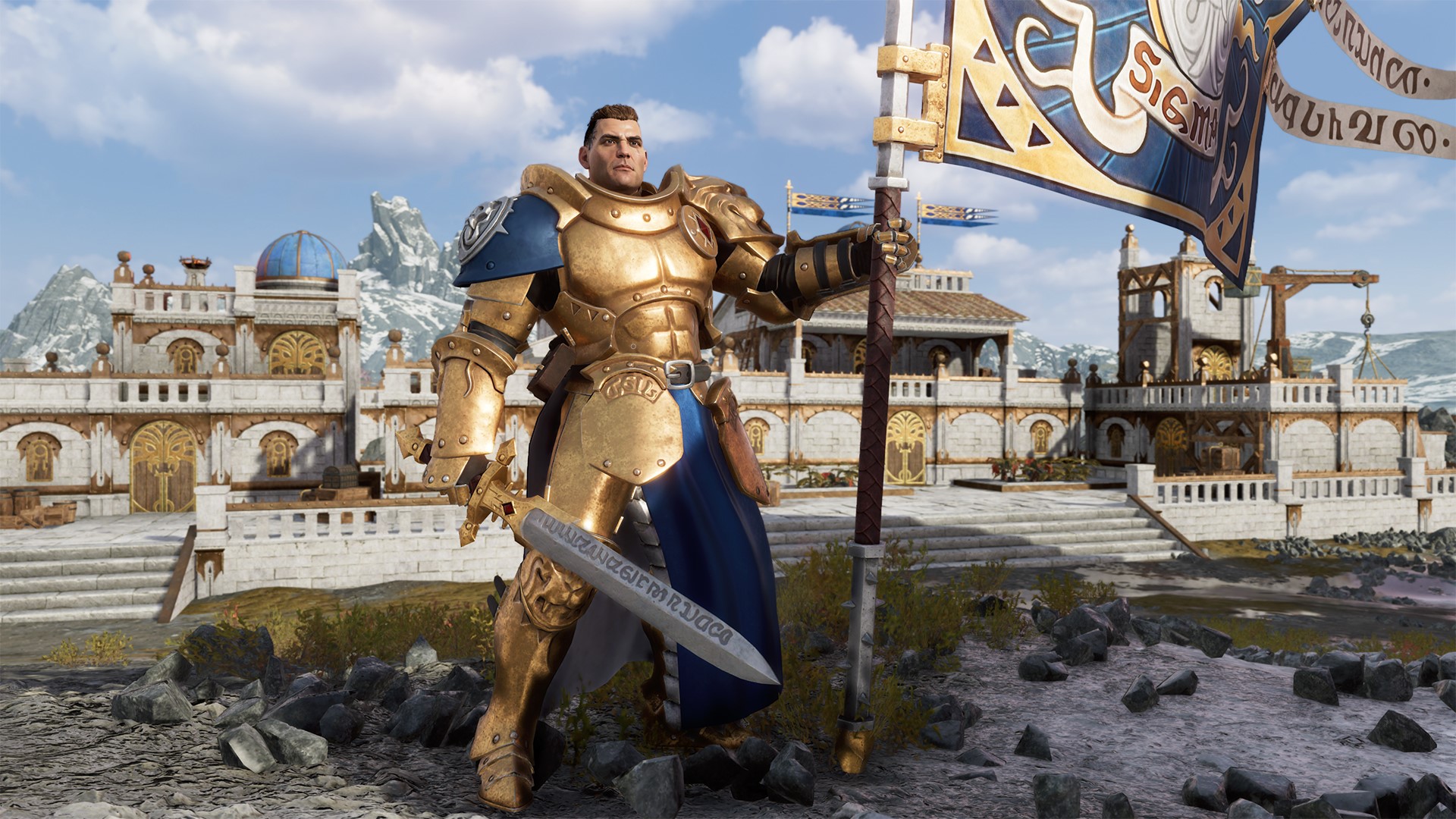
Despite its shortcomings, Age of Sigmar: Realms of Ruin is pretty punishing, especially when you're still wrapping your head around the quirks of its design. While Realms of Ruin is obviously inspired by the Dawn of War series, there are some key differences that set it apart.
Replenishment, for example, is less of a focus in Realms of Ruin, so you'll have to take care of your more expensive units, while piling your cheaper infantry into capturing points in the hopes of victory. Hopefully these Realms of Ruin tips make your Dawnbringer Crusade's opening days in Ghur a little easier.
Split up your units in the early game
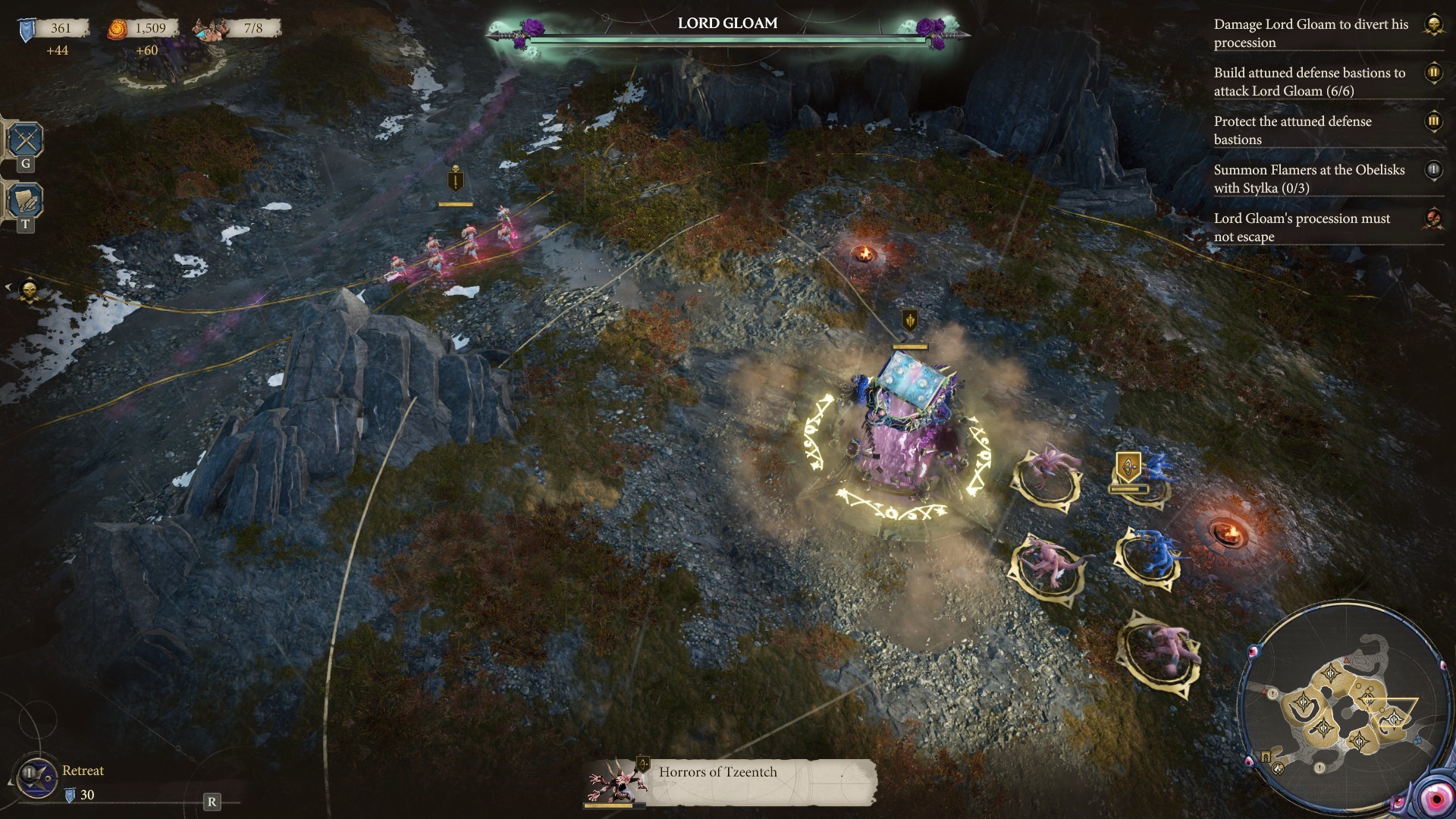
While units in Realms of Ruin gain combat benefits from hanging out next to your faction's leader, there's little point doing so at the start of a game. Your first move should be ordering your leader and infantry unit to the command points near your base, and building another unit of infantry to go and start taking control of objectives. Since command points take much longer to capture than objectives, you can use the early game lull to score some easy Realmstone.
Prioritize Attack and Defense upgrades
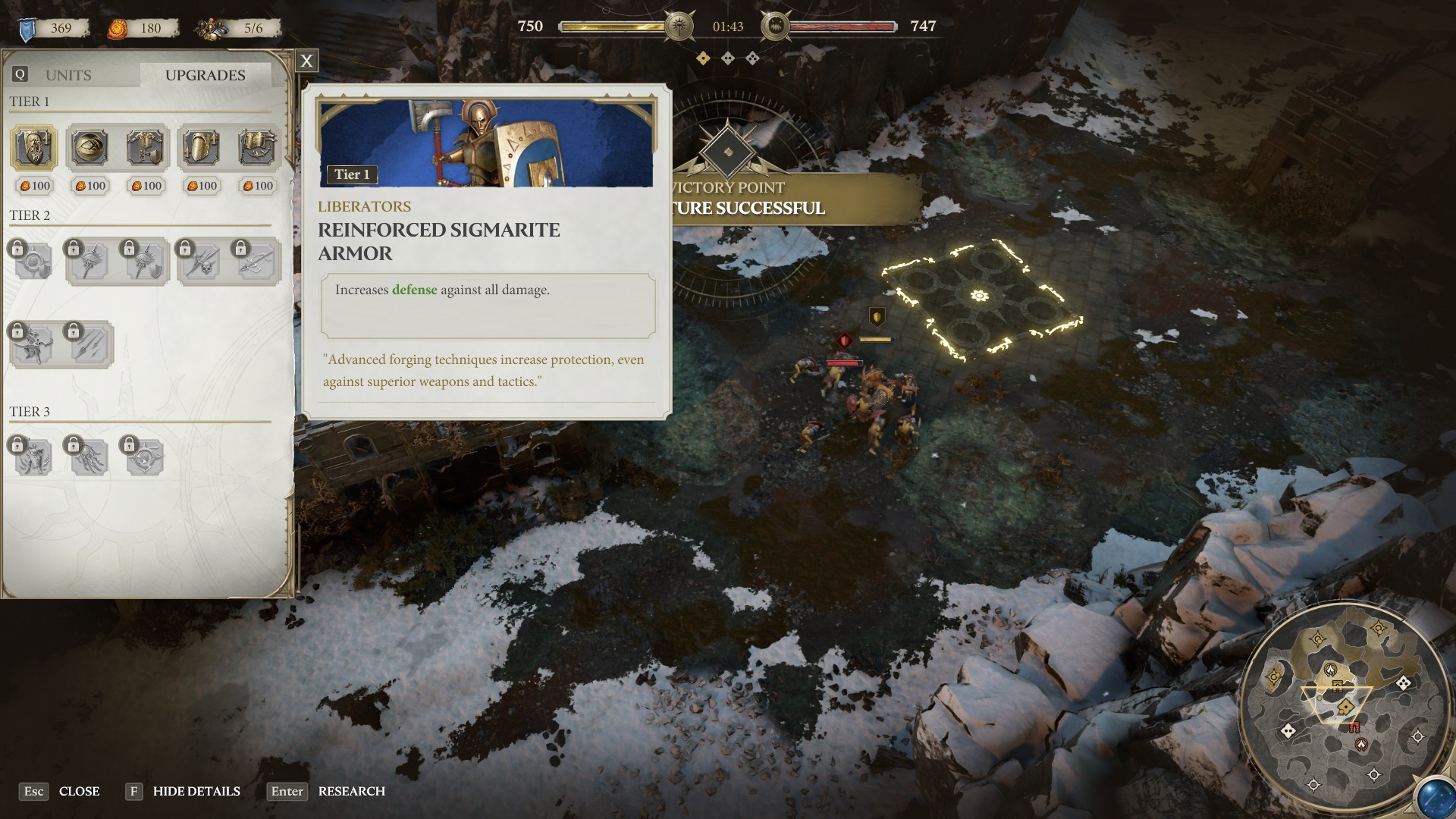
Since combat between units plays out more or less automatically, the most effective upgrades are the ones that increase attack and defense. It's really simple—units that hit harder will kill things faster, which means there's a chance you can come out of a fight with only a few scrapes, skipping the arduous march back to base before taking to the field again.
But be aware of the unique ones
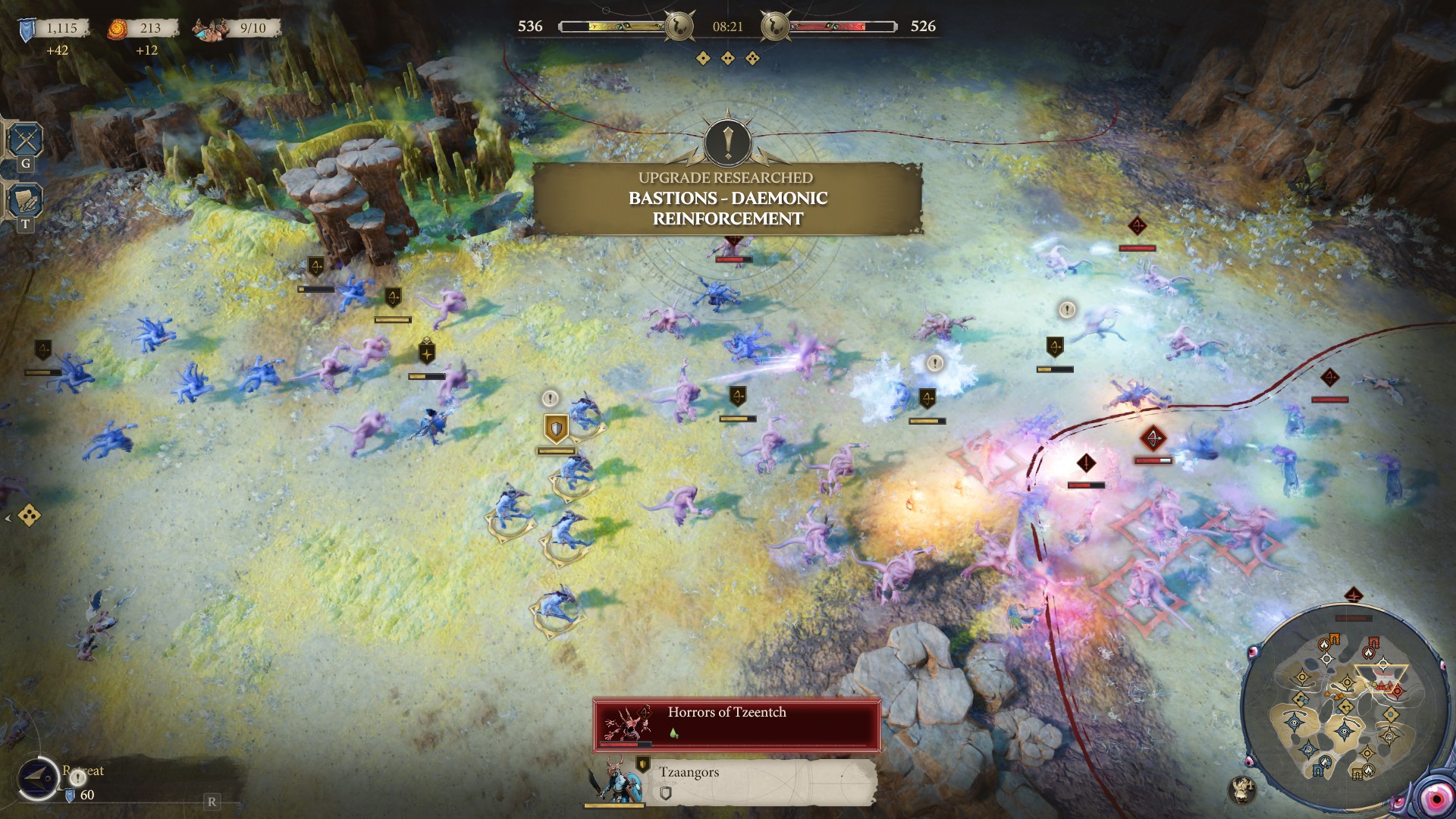
There are a few upgrades that are definitely worth taking over the flat damage and defense boosts, though, like the one that gives the Kairic Acolytes of Tzeentch HP-melting magic throwing knives, or the Longstrike Crossbow Vanguards that can keep enemy units stunlocked at range.
My personal favorite is the upgrade to the Horrors of Tzeentch that spawns even more on death, resulting in a pink and blue tidal wave of roiling magic energy. Sprinkle these upgrades conservatively across your army—the last thing you want is to spend a bunch of Realmstone on upgrades and then have none left to activate the ones you need.
Bodies bodies bodies
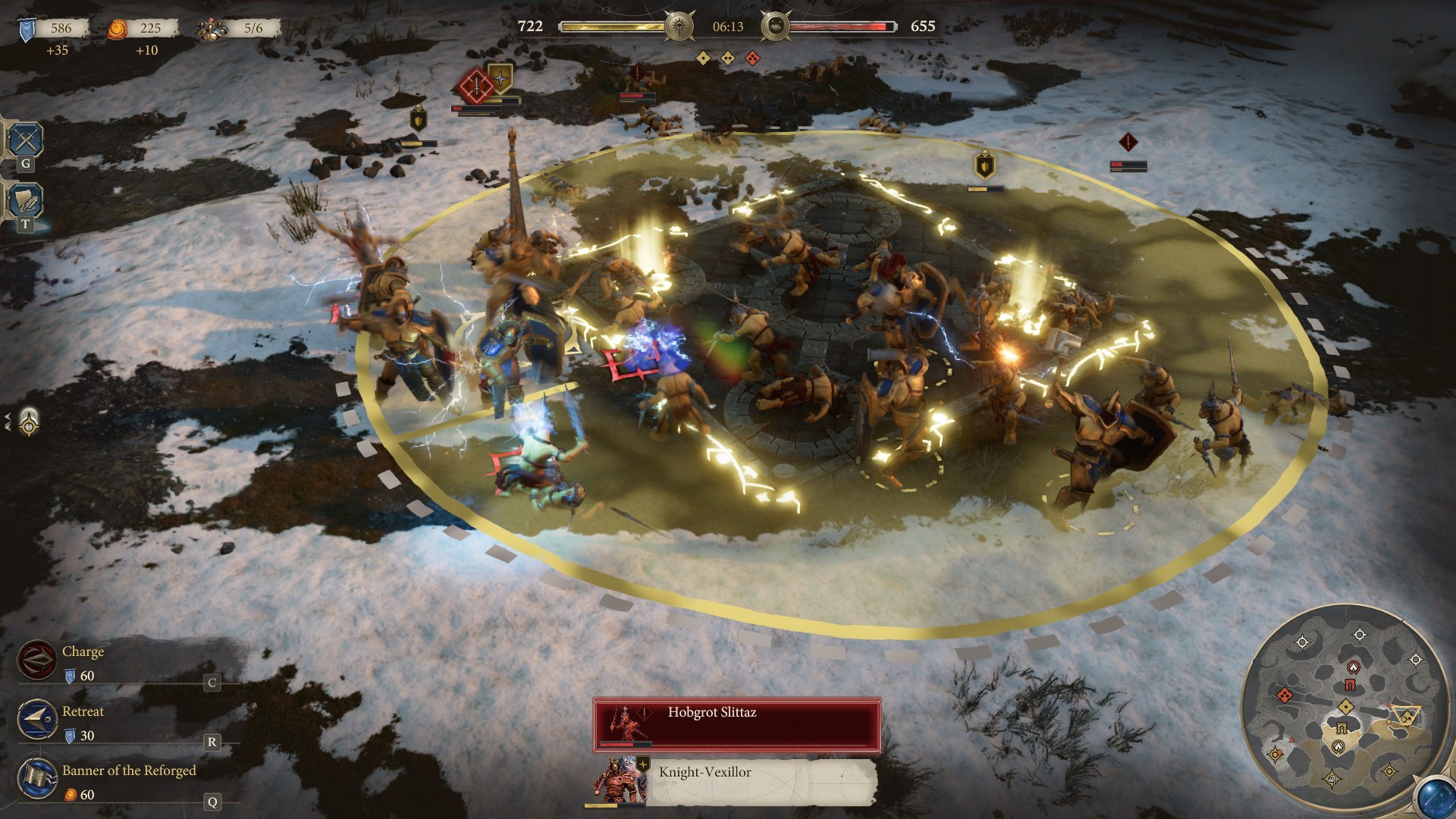
In Realms of Ruin, games are won by getting—and keeping—as many bodies as you can on the field. It doesn't matter what you do; combat will degenerate into a fevered mob eventually, so you might as well build your own mob of decently sturdy and easily replaceable infantry to pile onto objectives. Stormcast Liberators are great for this, since the Aegis of Sigmar ability is a bargain at 30 Realmstone and lets them trade blows with higher tier units—perfect for tying up the enemy while you cram more infantry onto the objective.
The biggest gaming news, reviews and hardware deals
Keep up to date with the most important stories and the best deals, as picked by the PC Gamer team.
ABC: Always Be Charging
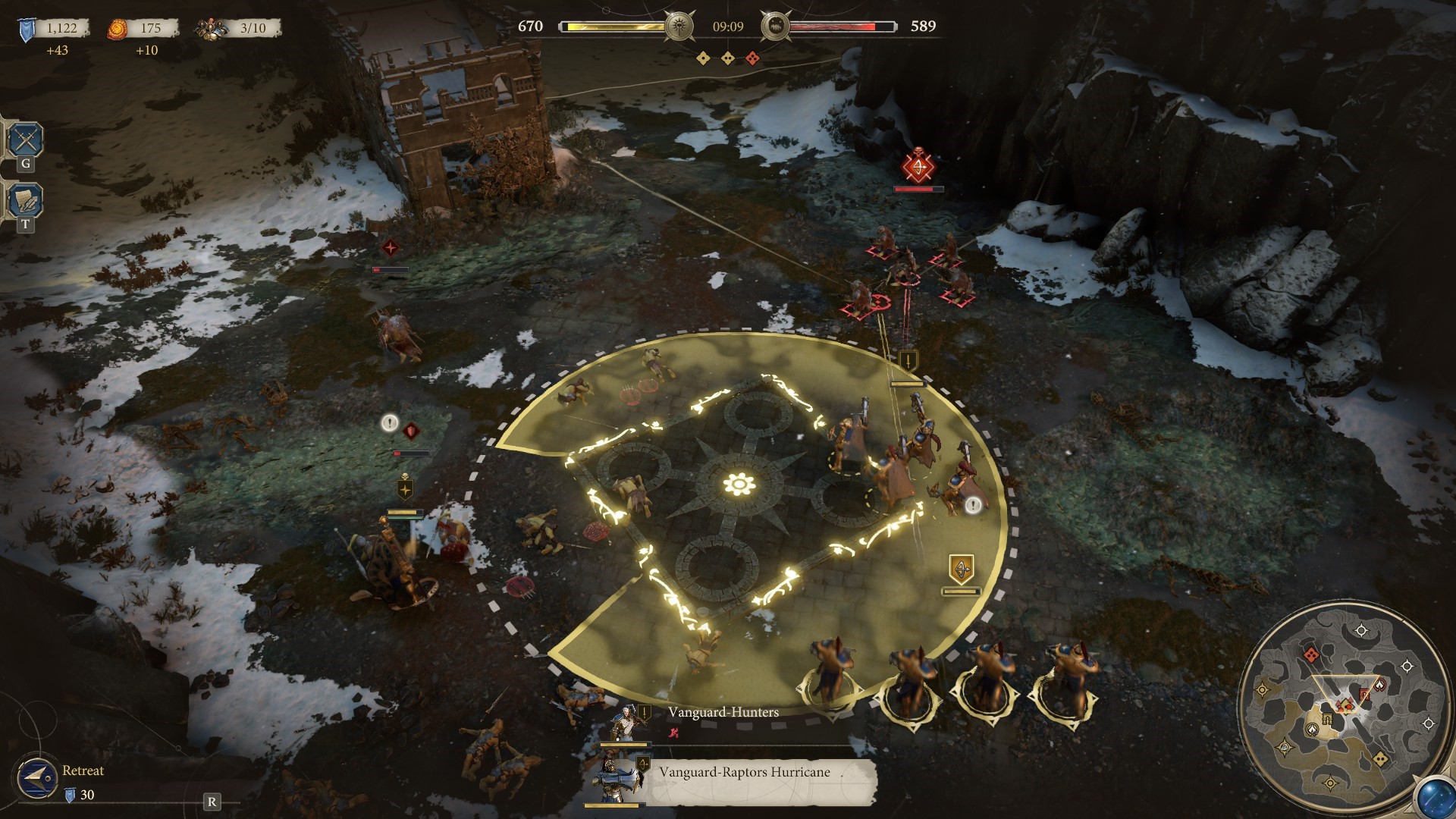
Some units, like the Stormcast Vanguard Hunters, have a charge ability that can be used freely—a successful charge knocks the enemy off balance for a few seconds, allowing you to get some free hits in. It's easy to forget about this ability, and Realms of Ruin's clunky movement mechanics don't always make it the easiest thing to pull off, but it's especially effective when targeting the exposed flank of an enemy already stuck into combat with another unit.
Get more Realmstone
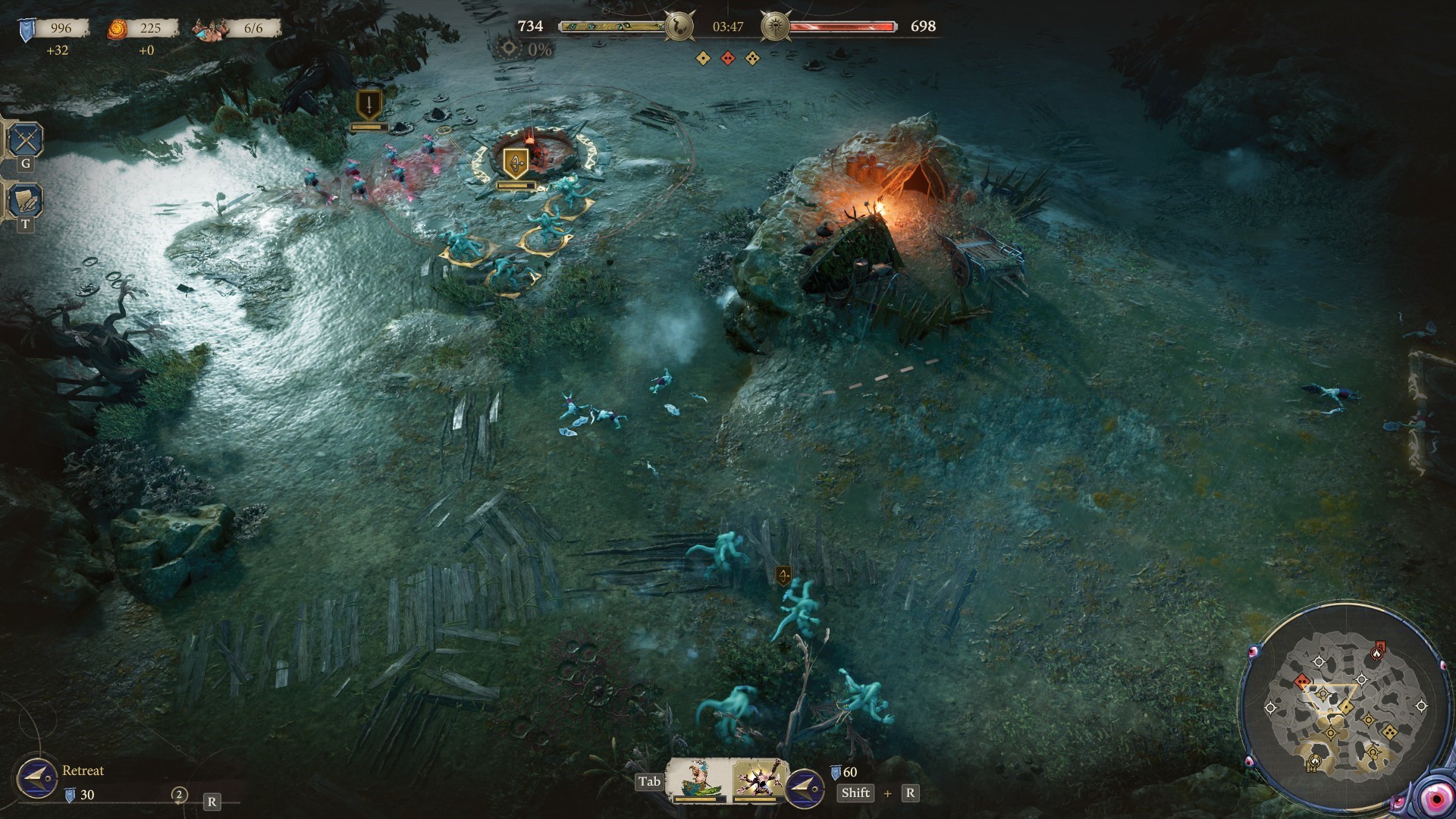
Realmstone is the scarce magic ore that keeps your army flush with abilities, reinforcements, and upgrades. Building bastions to serve as magic mortars or healing stations may be tempting, but far and away the most effective tower upgrade is the Realmstone Siphon. Construct these early and upgrade your home base to Tier II ASAP.
Guard your rear
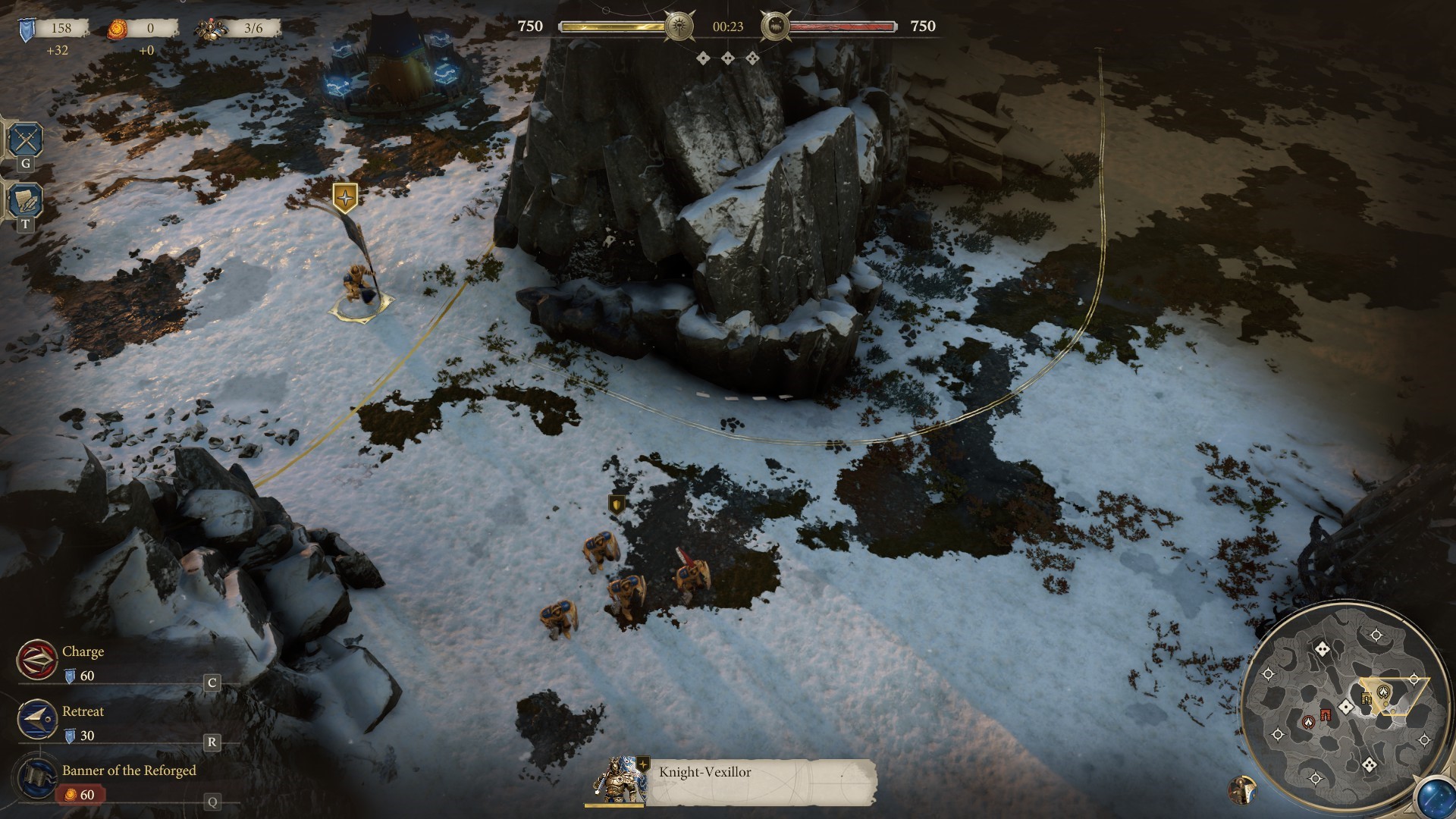
Realms of Ruin's low unit count means that if you've got soldiers on the field, you want them to be doing something—ideally killing an enemy or capturing an objective. Still, if you've got multiple towers under your control, it's well worth recruiting one Tier II unit to patrol your backline and tie up any harassers. I leaned heavily on the Tzaangors in the Daemons of Tzeentch army list, setting them up on zig-zagging patrols to serve as a bulwark against enemy assault units.
ABUFoT: Always Be Using Flamers of Tzeentch
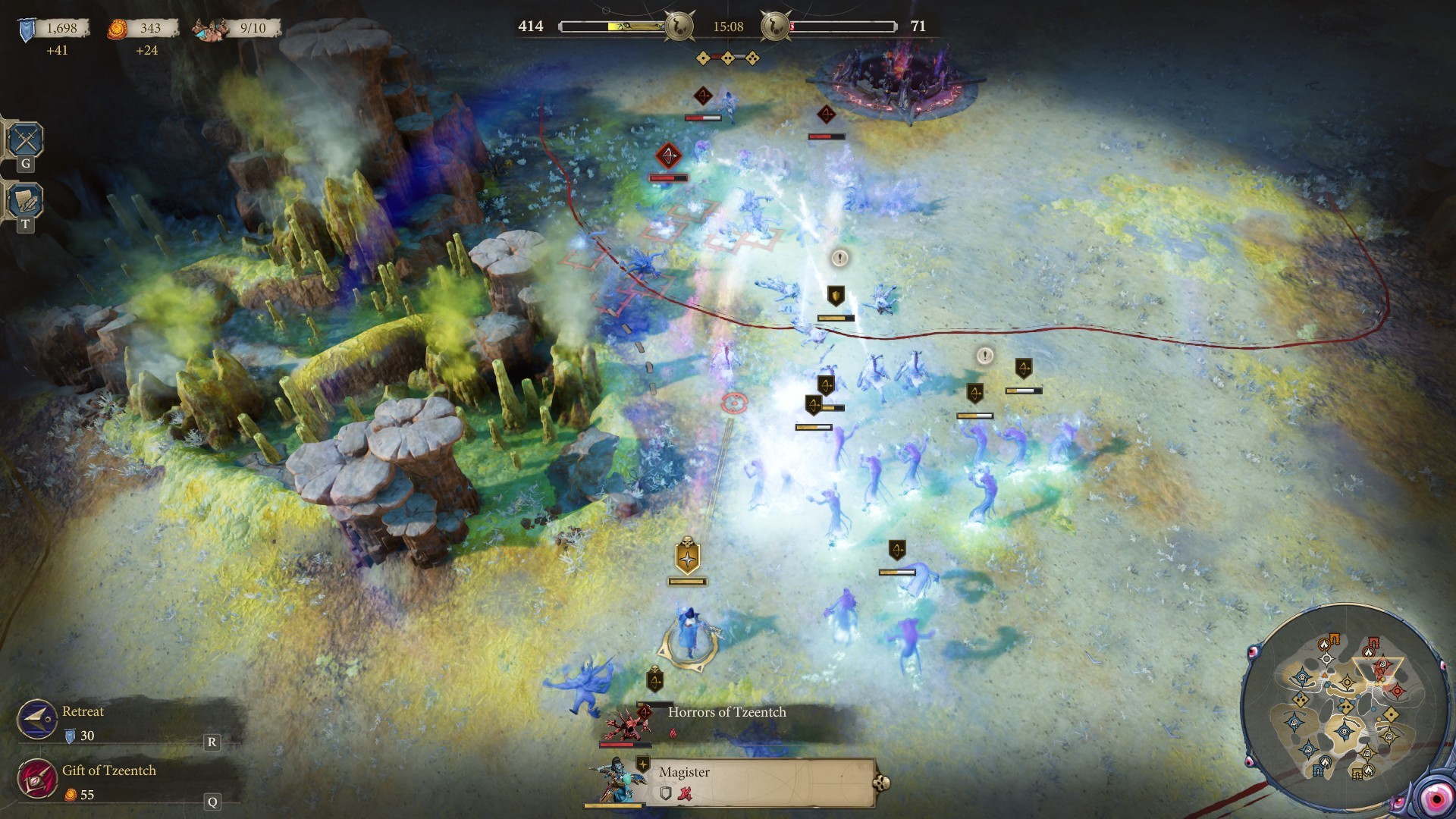
Speaking of Tzeentch, these are maybe the best units in the game, and every aspect of your strategy should be geared around getting as many Flamers on the field as quickly as possible. These guys will melt anything in front of them, and perfectly compliment the tanky Tzaangors you also unlock in the same tier. Two Flamers for every Tzaangor is a good ratio, but you could honestly go for three. All the Tzaangors have to do is soak up a few hits and let the Flamers incinerate their attacker.
Replacing units is often faster than healing them
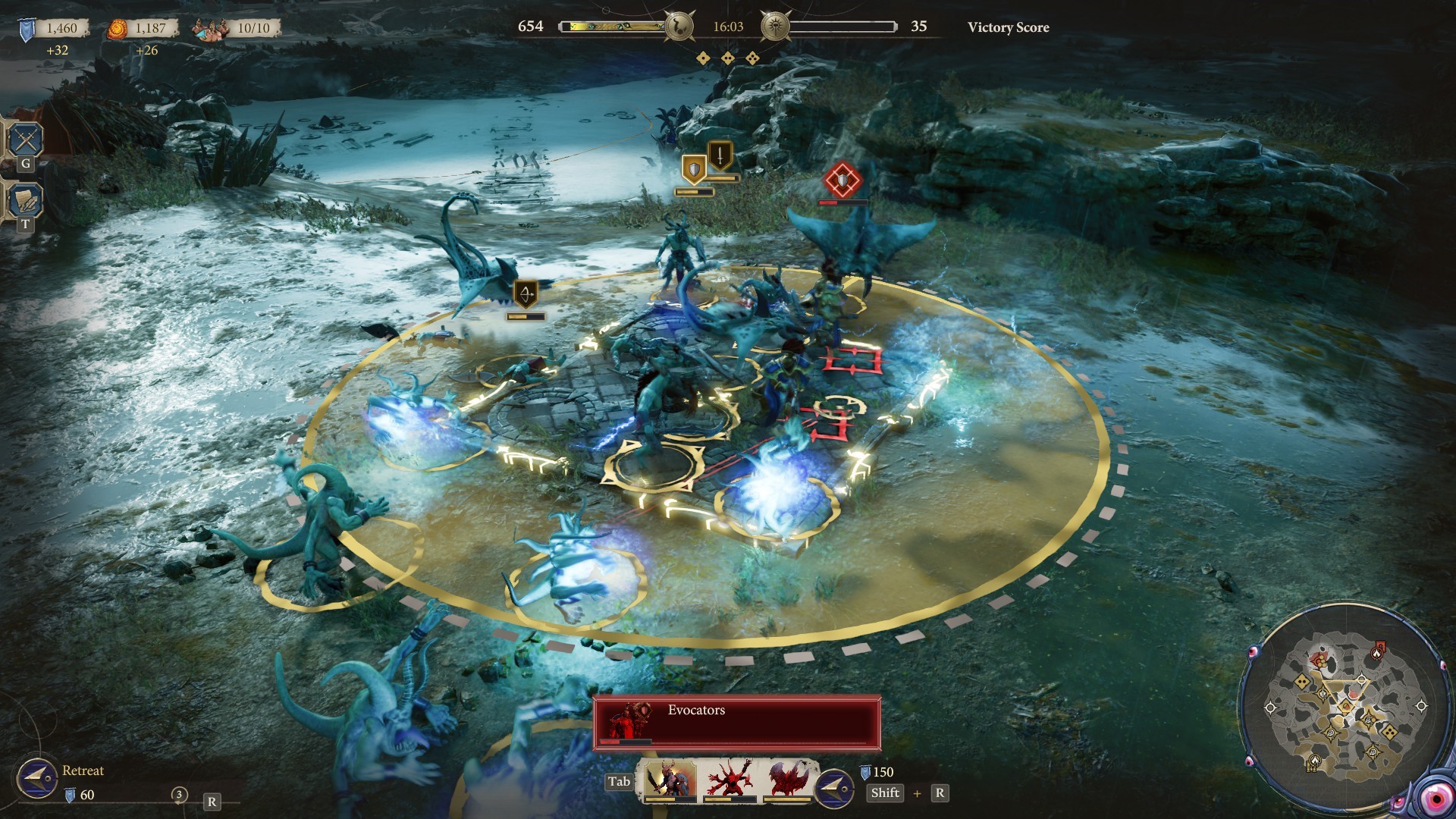
Realms of Ruin's retreat command sends whatever unit you use it on dead sprinting back to your base to heal up. Some units, especially in Tier I, are often better served by just, well, dying. It takes considerably more time for a unit to run back, heal up, and then head back to the front, than it does to just replace them with another cheap unit. Send your heavies and monsters with longer recruitment times back to base, and let Sigmar sort out everyone else.
Use command groups to move units, but select attacking units manually
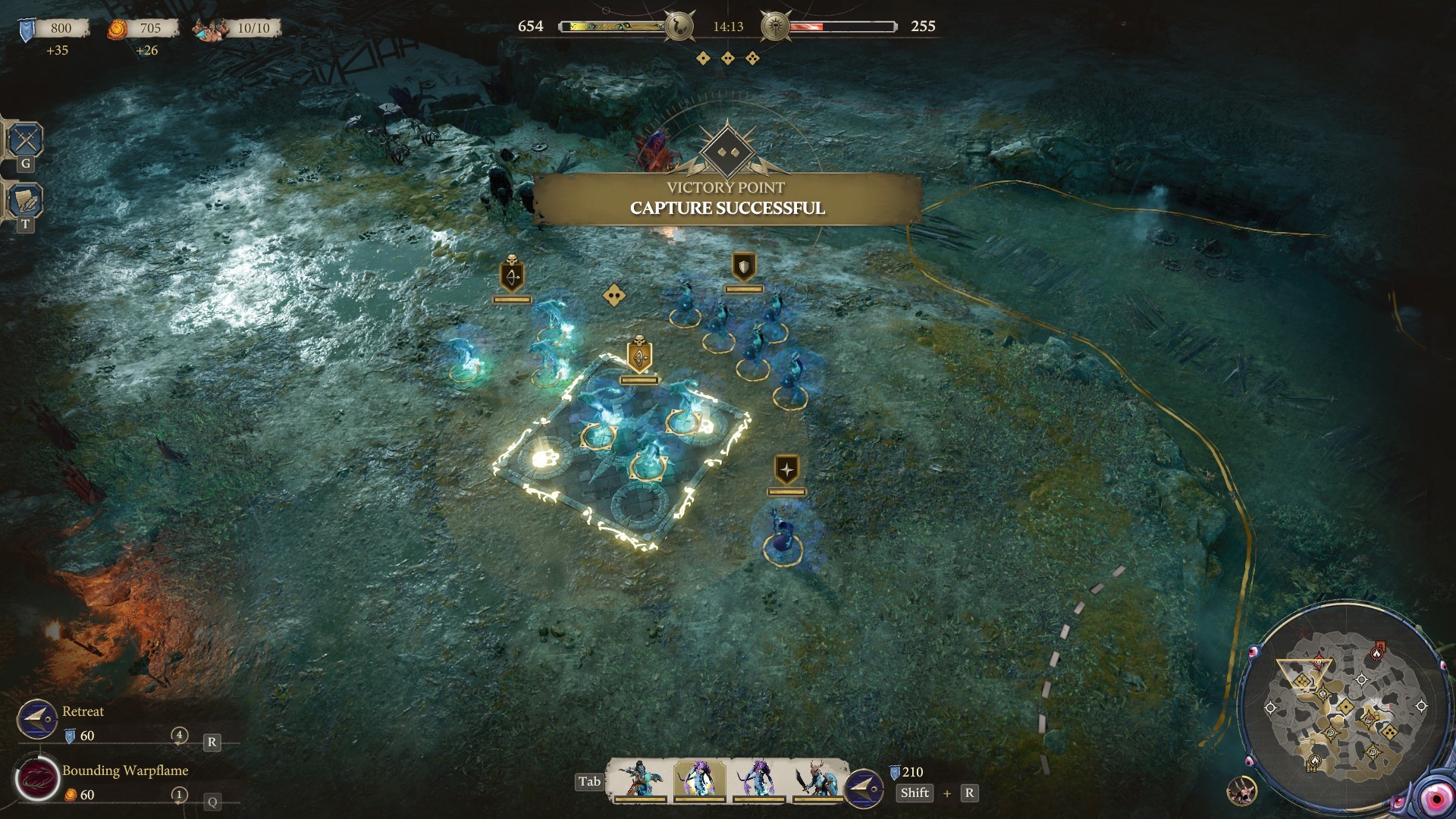
Selecting multiple units by pressing CTRL and a number will group multiple units together—common RTS stuff. Command groups are great for ferrying a mass of dudes onto an objective, but using them in battle is clunky, and guarantees that some of the units you'd prefer to keep at range will be among the first to enter the fray. Move command groups near where the battle is, and select their targets individually to prevent your backline units from being cut down early in the fight.

Nova Smith is a freelance writer based out of Alberta, Canada. Nova's grab bag of non-gaming interests and passions includes Japanese mecha anime, miniature painting, as well as history, literature, and classical music. Nova also moonlights as a bureaucrat and amateur historian.
- Sean MartinSenior Guides Writer

